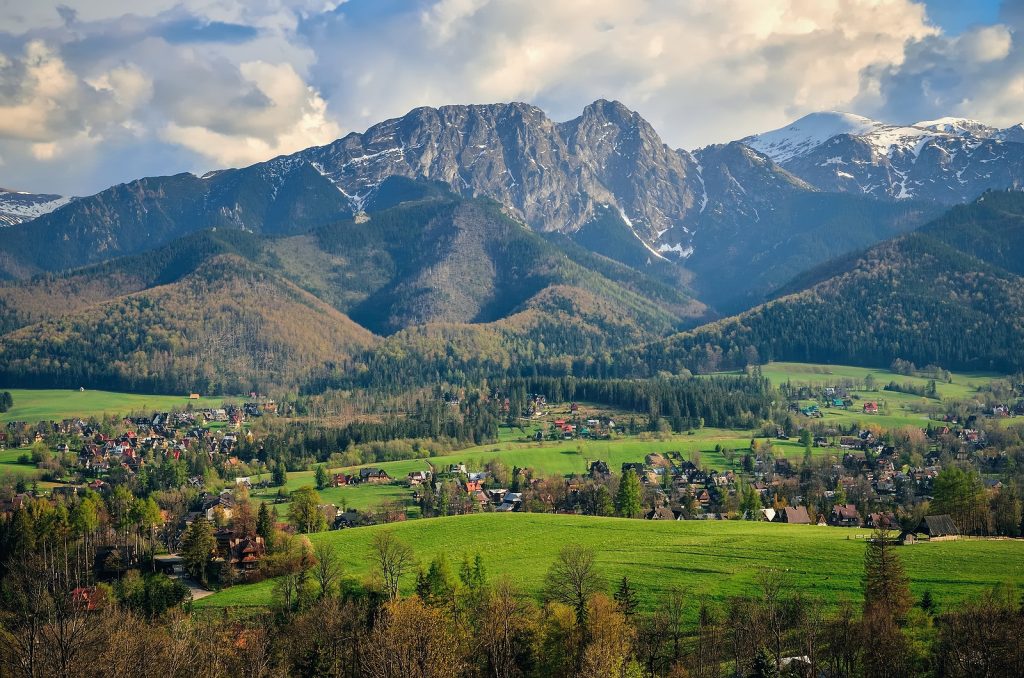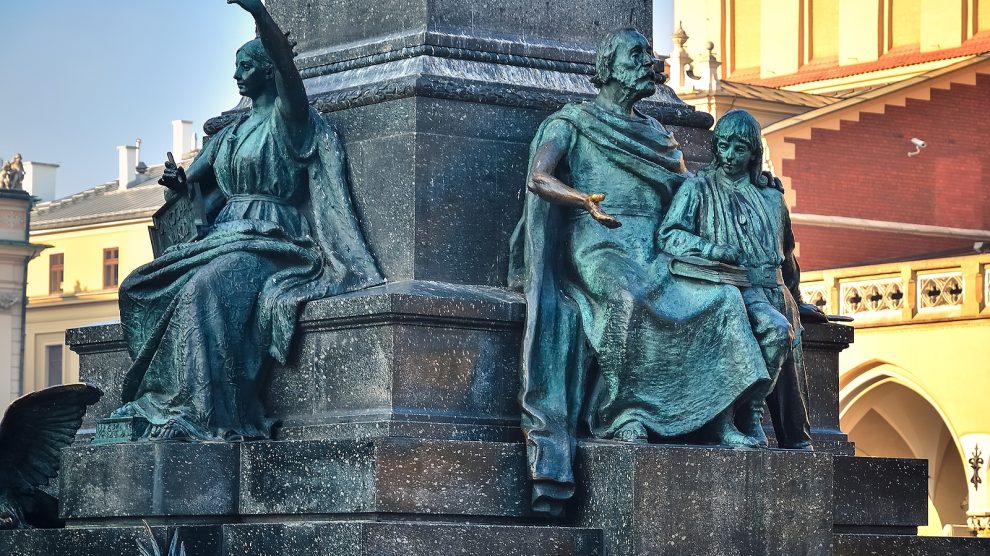Poland, rich with history, culture, and a landscape—from the mountains of the south to one of Europe’s last primeval forests—that begets good writing, has been an inspiration for countless renowned authors for centuries.
As part of our Five Essential Reads series, our editorial team has selected five novels (well, four novels and an epic poem), each distinct in style and genre and all available in English, which as a whole offer an immersive experience that transcends Poland’s much-changed geographical borders.
In finding the time to read these literary masterpieces it becomes clear how literature, not least in the case of a country with such a complex history as Poland, can often provide a more profound understanding of the past than traditional history books.
Too obvious to include, some would say, too essential to exclude, argue others. Considered Poland’s national epic and one of Europe’s last great epic poems, Pan Tadeusz takes us back to the early 19th century, during the tumultuous period marked by the Napoleonic Wars. Written by Adam Mickiewicz, this poetic masterpiece weaves a tale of love, honour, and patriotism against the backdrop of life in the Polish countryside. Its vivid descriptions perfectly portray both the magnificence and tragedy of Polish rural life while exploring the intricate social fabric of the era.
Jan Potocki’s The Manuscript Found in Saragossa effortlessly blends mystery, adventure, and the supernatural. It is a window on a mesmerising, bewildering world where reality intertwines with folklore. This labyrinthine novel follows the journey of Alphonse van Worden, a young officer stationed in Spain, and uncovers his encounters with a wide array of intriguing characters. As the narrative unfolds, Van Worden finds himself thoroughly engaged in a collection of stories within stories, taking readers on a journey through the streets of Warsaw and deep into Polish mythology.
Set in late 19th century Warsaw, The Doll by Bolesław Prus delves into the complex social dynamics and aspirations of Polish society during a time of rapid change. Through the eyes of its protagonist, Stanisław Wokulski, Prus intricately paints a picture of love, ambition, and the struggle for acceptance. As Wokulski strives to win the affection of Izabela Łęcka, a socialite, he becomes a victim of her manipulative nature and the relentless pursuit of societal status. Prus masterfully portrays the stark contrast between the wealthy elite and the striving middle class, shedding light on the complex dynamics of Polish society at the time.

Jerzy Kosiński’s The Painted Bird confronts readers with the haunting reality of World War II through the eyes of an unnamed young boy navigating the war-torn Polish countryside. The novel powerfully depicts the horrors of wartime brutality, providing a stark portrayal of the human condition amidst chaos and destruction. Kosiński’s raw and evocative prose invites readers to grapple with the darkness, while also uncovering moments of light and resilience. Ultimately, however, the vivid and brutal depiction of the boy’s journey offers a harrowing exploration of the dark side of humanity and the impact of violence on innocence.
Set, of course, deep in space, Stanislaw Lem’s Solaris revolves around a team of scientists who study an enigmatic ocean that covers the entire surface of the eponymous planet. However, as they attempt to decipher the mysterious activities occurring on Solaris, Lem subtly weaves in elements that reflect the complex relationship between the author and his homeland, Poland. The planet’s ever-changing and unpredictable nature mirrors the turbulent history of Poland, not least the period in which it was written, the early 1960s, when Poland was struggling to preserve its identity amidst the suffocating influence of communism.
Unlike many news and information platforms, Emerging Europe is free to read, and always will be. There is no paywall here. We are independent, not affiliated with nor representing any political party or business organisation. We want the very best for emerging Europe, nothing more, nothing less. Your support will help us continue to spread the word about this amazing region.
You can contribute here. Thank you.







Add Comment